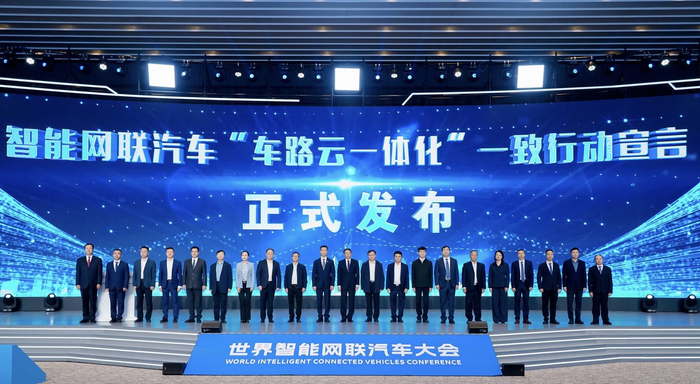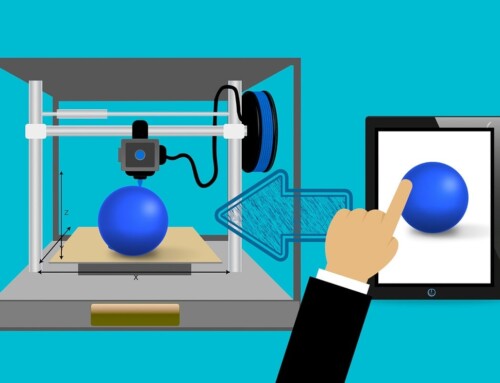From 16 to 18 October, the 2025 World Intelligent Connected Vehicles Conference (WICV) opened in Beijing.
Key attendees included Liu Wei, Minister at the Ministry of Transport (MOT); Xin Guobin, Vice Minister at the Ministry of Industry and Information Technology (MIIT); and Wan Gang, President of the China Association for Science and Technology. Other distinguished guests included Qi Yanjun, Vice Minister at the Ministry of Public Security; Kim Yoon-deok, Minister of Land, Infrastructure and Transport of the Republic of Korea; Miguel Marques Gonçalves Manetelu, Minister of Transport and Communications of Timor-Leste; Tefera Derbew Yimam, Ambassador of Ethiopia to China; Hildegard Müller, President of the German Association of the Automotive Industry (VDA); and Sigrid de Vries, Secretary General of the European Automobile Manufacturers’ Association (ACEA).
Liu Wei highlighted that the MOT has issued the Implementation Opinions on “Artificial Intelligence + Transportation.” The MOT sees artificial intelligence as a major driver of innovation and has launched pilot projects for intelligent transportation, strengthened research and application of intelligent connected and autonomous driving technologies, and developed several mature and scalable demonstration projects. The ministry has also expanded international cooperation in autonomous driving to promote global innovation in ICVs.
Looking ahead, Liu outlined three key priorities:
- Drive innovation: Increase the supply of key technologies, strengthen innovative applications, and ensure the availability of core resources.
- Improve the ecosystem: Develop new types of productive forces suited to local needs and enhance both the quality and safety of transportation.
- Integrate AI and transport: Build a smart, integrated, three-dimensional transportation network and advance industrial development through technological innovation.
He also stressed that China would continue to strengthen global cooperation, helping realize the vision of “smooth travel for people and efficient flow of goods,” ensuring transportation development benefits people worldwide, and contributing to a community with a shared future for humankind.
Xin Guobin noted that, with collective efforts from all sectors, China’s ICV industry has made solid progress in recent years. The country has built a complete industrial system covering smart cockpits, autonomous driving, and cloud-based control, carried out “vehicle–road–cloud integration” pilots, issued key standards, and improved international coordination on regulations, laying a strong foundation for innovation.
Looking to the next phase, MIIT will formulate the “15th Five-Year Plan for Intelligent Connected New Energy Vehicle Industry Development” to guide high-quality industrial growth. Its priorities include:
- Encouraging technological breakthroughs in AI integration with the automotive sector and in key technologies such as advanced E/E architectures and high-performance computing chips;
- Promoting cross-sector collaboration by continuing the “vehicle–road–cloud integration” pilots and building trusted data spaces;
- Improving policy and standards, speeding up standardization for assisted and autonomous driving, refining production access systems, and maintaining fair competition;
- Expanding international cooperation, encouraging Chinese and foreign enterprises to deepen joint work on technology and standards, and building a secure and efficient supply chain system.
At the opening ceremony, organizers released phased results from the “vehicle–road–cloud integration” pilot program and launched the National Pilot Base for Artificial Intelligence Vehicle Applications.
The conference is jointly hosted by MIIT, MOT, and the Beijing Municipal Government, ran under the theme “Gathering Wisdom and Energy, Connecting the Infinite.” It included a plenary session and three special events: the Automotive Industry Policy Roundtable, the International Cooperation Forum on the Automotive Industry, and the Beijing–Tianjin–Hebei Cross-Regional Collaboration Meeting.
Six forums covered topics such as policy, technology, safety, AI, application, and data, while five side events explored frontier areas including chips, innovation, transportation infrastructure, insurance, and ecosystem development. The conference also unveiled new achievements such as the Top 10 Standardization Achievements for ICVs, the Technology Roadmap for ICV Networks, and the Trusted Data Space for the Automotive Industry.
More than 4,000 representatives from governments, enterprises, and research institutions in over 10 countries and regions are participating in the event.
Source: https://www.miit.gov.cn/jgsj/zbys/gzdt/art/2025/art_fc728322f2714426bcfb505024e46fc7.html





